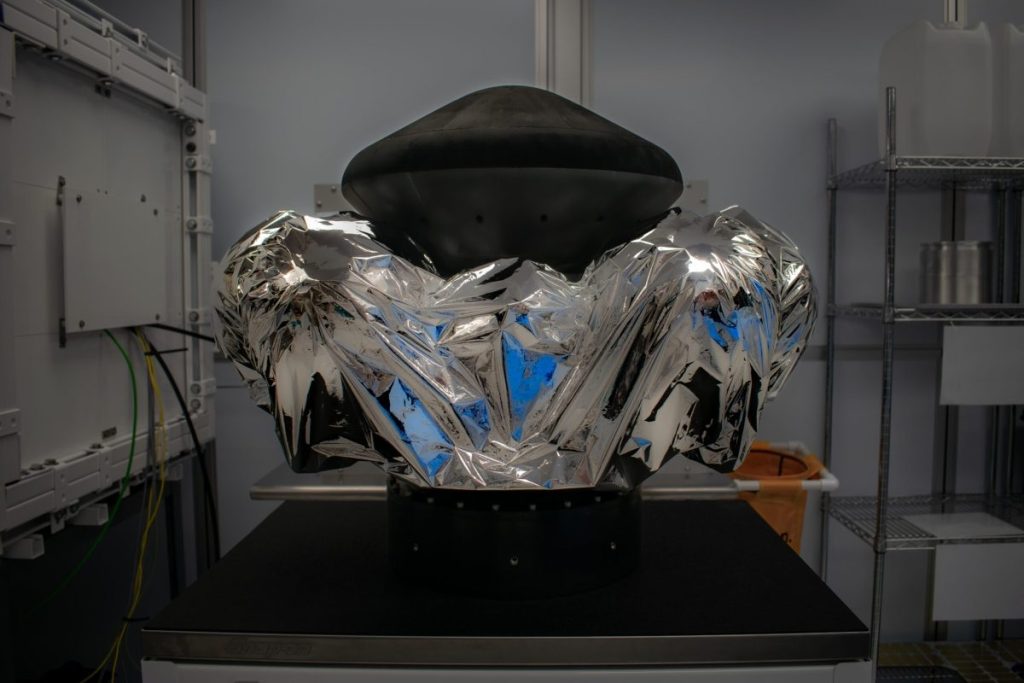
Inversion Space raises $44 million (Image Credit: Space News)
BREMEN, Germany — Inversion Space has raised $44 million to further development of reentry vehicles to deliver cargo from space.
The Los Angeles-based company announced Nov. 20 that it raised a Series A round led by Spark Capital and Adjacent, with participation from Lockheed Martin Ventures, Kindred Ventures and Y Combinator. The company has raised $54 million to date, with a $10 million seed round in 2021. It also won in September a Strategic Funding Increase (STRATFI) agreement with the Space Force’s SpaceWERX valued at $71 million, a combination of government and private funding to support work on reentry vehicles tailored for military customers.
Inversion will use the funds to further development of Arc, a reentry vehicle designed to provide what it called “precision delivery on-demand” from space to the Earth. The company is currently working on the design of Arc with a first flight planned for 2026.
Justin Fiaschetti, co-founder and chief executive of Inversion, said in an interview that the funds will allow the company to grow from its current 25 employees to about 70, enough to develop Arc, and to move into a new facility. “This will get us through that whole product cycle and into and through development,” he said. The Series A funding, he stated, is sufficient to get through the first flight of Arc.
Spark Capital and Y Combinator are returning investors from Inversion’s seed round, while Adjacent, Lockheed and Kindred are new investors. “We’re really excited because it’s a broad group of types of investors, not just space investors,” he said, with some attracted to Inversion because they see delivery from space as a compelling service.
“Getting a package delivered from space anywhere in the world will fundamentally transform logistics, and autonomous reentry vehicles are going to change the economics of delivery,” Nabeel Hyatt, general partner at Spark Capital, said in a statement.
Having Lockheed Martin Ventures as an investor, Fiaschetti noted, can help open doors for Inversion to Lockheed Martin overall, including access to the company’s engineering expertise and testing facilities, tapping into that company’s expertise in reentry systems. “We have a lot we can work with them on.”
“Inversion’s innovative approach to on-demand delivery from space has the potential to revolutionize the way goods are transported and delivered globally,” Chris Moran, vice president and general manager of Lockheed Martin Ventures, said in a statement. “We’re excited to support them in their mission to make this vision a reality.”
Besides delivering cargo from space to Earth, Fiaschetti said his company is seeing interest in the ability to collect data during reentry and to perform in-space testing of hardware that can be returned to Earth for analysis. “Basically, we’re acting as a platform that’s able to test components in space and then bring them back down to the ground for analysis, whether that be for commercial or government customers,” he said.
The funding announcement comes a month after the company secured a reentry license from the Federal Aviation Administration for a demonstration spacecraft called Ray. That spacecraft will go into orbit and, after about a week, reentry and splash down off the California coast.
Fiaschetti said that the company is still planning to launch Rey on SpaceX’s Transporter-12 rideshare mission, which was to launch this month. That mission has been delayed, potentially to January, but he said any delay in the launch won’t affect plans for testing Ray or for development of Arc.








